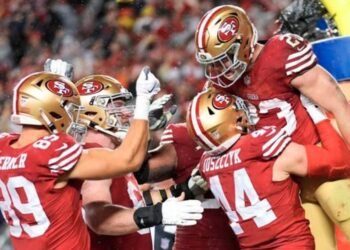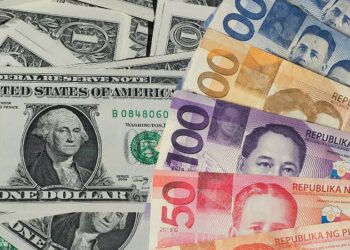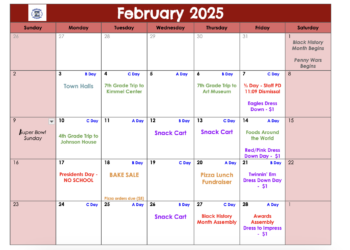The relationship between Vietnam and America has evolved significantly over the past few decades. From the tumultuous period of the Vietnam War to the present day, where both countries engage in diplomatic and economic partnerships, the dynamics have shifted considerably. Many people wonder, “Does Vietnam like America?” This question cannot be answered simply due to the complex layers of historical events, economic ties, and cultural exchanges that influence perceptions. This article will explore the historical context, current diplomatic relations, economic connections, and cultural perspectives to comprehensively understand how Vietnam views America today. By examining these aspects, we can gain insights into the multifaceted relationship between these two nations.
Does Vietnam like America?
The relationship between Vietnam and America is multifaceted and has evolved significantly since the Vietnam War. Today, many Vietnamese people view America positively, especially in terms of economic opportunities and cultural exchanges. However, historical memories of the war still impact perceptions for some. Overall, the relationship is characterized by growing cooperation and mutual respect.
Historical Context
The history between Vietnam and America is marked by the Vietnam War, a conflict that left deep scars on both nations. The war, which lasted from 1955 to 1975, saw significant loss of life and left a lasting impact on the Vietnamese people. This period was characterized by intense conflict and a strained relationship between the two countries.
After the war ended, Vietnam faced significant challenges in rebuilding and healing. The US imposed an economic embargo on Vietnam, which lasted until the early 1990s. This embargo hindered Vietnam’s economic recovery and contributed to continued tensions between the two nations. However, the lifting of the embargo in 1994 marked the beginning of a new era in US-Vietnam relations.
In the years that followed, both countries took steps to normalize relations. Diplomatic ties were officially restored in 1995, leading to increased cooperation and dialogue. This period of normalization was crucial in laying the groundwork for the positive relationship that exists today. Despite the painful history, both nations have made significant efforts to move forward and build a cooperative partnership.
Diplomatic Relations Today
Establishing Diplomatic Ties
The normalization of diplomatic relations in 1995 was a significant milestone for both countries. This step marked the beginning of a new chapter, characterized by increased communication and collaboration. Since then, high-level visits and bilateral agreements have strengthened the diplomatic ties between Vietnam and America.
Cooperation in Various Sectors
Today, the two countries cooperate in various sectors, including trade, education, and defense. The US is one of Vietnam’s largest trading partners, and both nations benefit from a robust economic relationship. Additionally, educational exchanges and programs have fostered greater understanding and collaboration between Vietnamese and American institutions.
Regional and Global Cooperation
Vietnam and America also cooperate on regional and global issues. Both countries are members of international organizations and work together on issues such as climate change, security, and public health. This cooperation highlights the growing importance of the US-Vietnam partnership in addressing global challenges.
Economic Ties and Trade Relations
- Trade Growth: The economic relationship between Vietnam and America has grown significantly since the normalization of relations. Bilateral trade has increased, with both countries benefiting from the exchange of goods and services.
- Investment Opportunities: American companies have invested in various sectors in Vietnam, including technology, manufacturing, and infrastructure. These investments have contributed to Vietnam’s economic growth and development.
- Economic Agreements: Both countries have signed several economic agreements to facilitate trade and investment. These agreements have strengthened economic ties and created opportunities for businesses in both nations.
- Tourism and Travel: Tourism is another area of economic interaction. Many Americans visit Vietnam for its rich culture and history, while Vietnamese tourists explore the diverse attractions in the US. This exchange fosters mutual understanding and economic benefits.
Cultural Exchange and Influence
Cultural exchange plays a significant role in shaping the relationship between Vietnam and America. The exchange of cultural practices, ideas, and traditions has fostered greater understanding and appreciation between the two nations. This cultural interaction is evident in various forms, including art, music, cuisine, and education.
Educational exchanges have been particularly impactful. Many Vietnamese students study in American universities, gaining exposure to different perspectives and academic opportunities. These students often return to Vietnam with a broader worldview and contribute to the country’s development.
American culture also has a presence in Vietnam. The popularity of American movies, music, and fashion among Vietnamese youth reflects the cultural influence of the US. This cultural affinity has helped bridge gaps and foster a sense of connection between the two countries.
Perceptions of America in Vietnam
Historical Impact
The Vietnam War left a lasting impression on the Vietnamese people. For older generations, memories of the war and its aftermath may still influence their perceptions of America. However, younger generations tend to view America more positively, focusing on opportunities for education, employment, and cultural exchange.
Media and Information
Access to information and media plays a role in shaping perceptions. Positive portrayals of America in movies, television shows, and news reports contribute to a favorable view. Additionally, social media platforms allow for direct interaction and exchange of ideas, further influencing perceptions.
Personal Experiences
Personal experiences with Americans, whether through travel, education, or business, significantly impact how Vietnamese people view America. Positive interactions often lead to a more favorable opinion, while negative experiences can have the opposite effect.
Does Vietnam Like America?
- Economic Cooperation: The robust trade relationship and investment opportunities indicate a positive economic partnership.
- Cultural Affinity: The influence of American culture and the presence of Vietnamese students in the US reflect a cultural connection.
- Diplomatic Relations: The strong diplomatic ties and cooperation on global issues highlight mutual respect and collaboration.
- Generational Differences: Younger generations in Vietnam tend to view America more positively than older generations affected by the war.
- Overall Sentiment: While historical events still impact perceptions, the overall sentiment is increasingly positive, marked by growing cooperation and mutual benefits.
Conclusion
Understanding how Vietnam views America involves looking at various factors, including historical context, economic ties, and cultural exchanges. While the memories of the Vietnam War still influence some perspectives, the relationship between the two nations has evolved significantly. Today, Vietnam and America enjoy a robust partnership characterized by economic cooperation, diplomatic relations, and cultural affinity. Younger generations in Vietnam, in particular, tend to view America positively, focusing on the opportunities and benefits of a strong bilateral relationship. As both countries continue to work together on regional and global issues, the bond between Vietnam and America is likely to strengthen, fostering mutual respect and understanding.
FAQs
How has the relationship between Vietnam and America evolved?
The relationship has evolved from the conflict of the Vietnam War to a robust partnership characterized by economic, diplomatic, and cultural cooperation.
What are the critical areas of cooperation between Vietnam and America?
Key areas of cooperation include trade, education, defense, and addressing global challenges such as climate change and public health.
How do younger generations in Vietnam view America?
Younger generations tend to view America positively, focusing on educational opportunities, employment, and cultural exchange.
What role does cultural exchange play in US-Vietnam relations?
Cultural exchange fosters greater understanding and appreciation between the two nations, influencing perceptions and building connections through art, music, cuisine, and education.
How has the Vietnam War impacted perceptions of America in Vietnam?
The war left a lasting impression, particularly on older generations. However, the overall sentiment is increasingly positive as both countries have made significant efforts to move forward and build a cooperative relationship.







